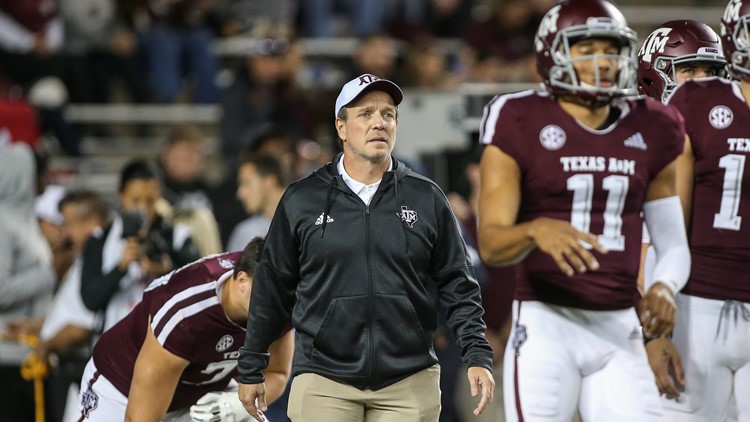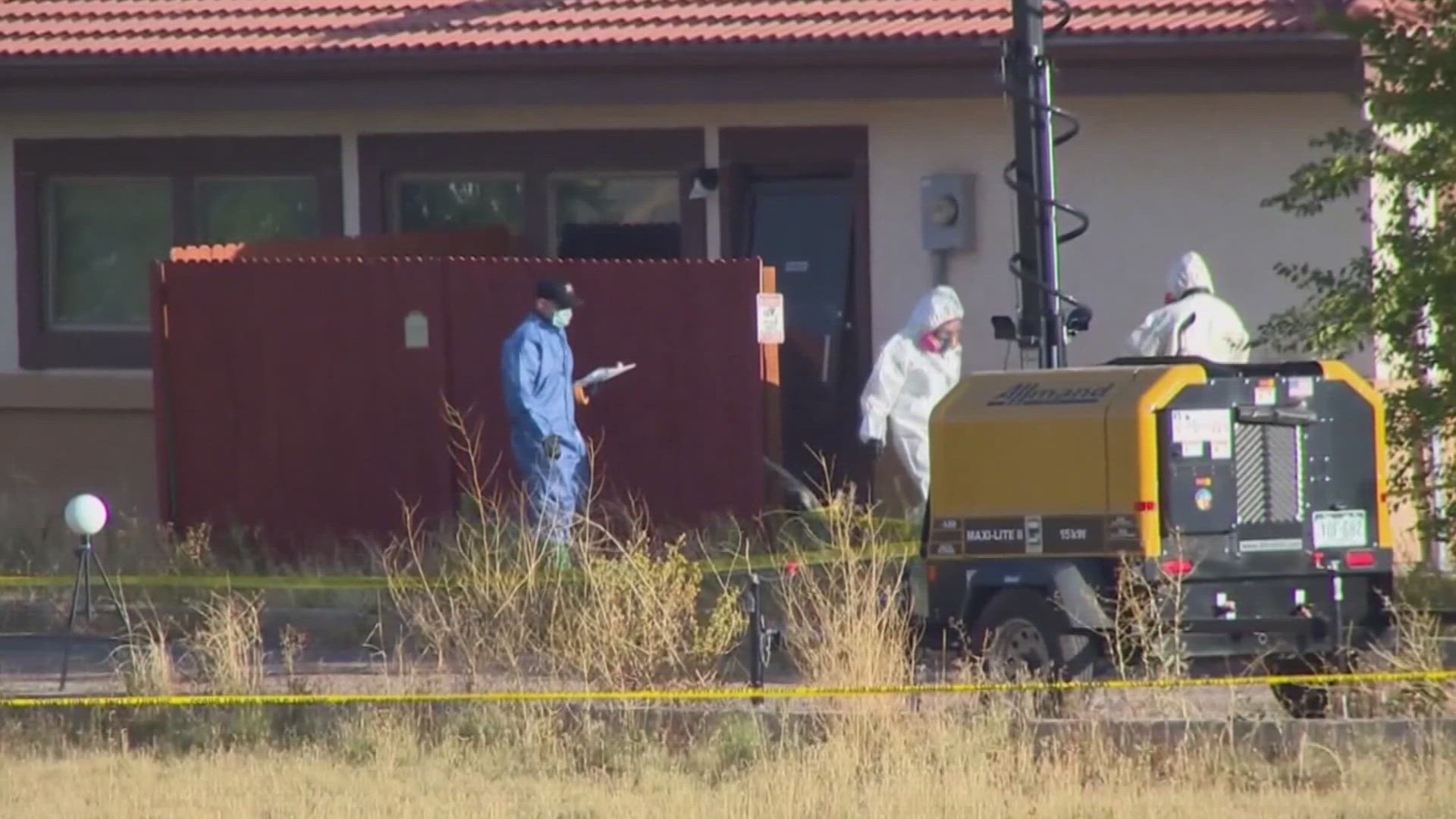COLLEGE STATION, Texas — The Texas A&M football program violated NCAA recruiting and countable athletically related activity rules between January 2018 and February 2019, according to an agreement released by the Division I Committee on Infractions on Thursday.
The report says head coach Jimbo Fisher also violated NCAA head coach responsibility rules.
The university, head coach and NCAA enforcement staff agreed the Fisher and an assistant coach had" impermissible recruiting contact with a prospect at his high school." The conversation was impermissible because it occurred before the completion of the prospect’s junior year in high school.
Regarding the countable athletically related activity violations, during permissible weeks of spring and summer activity, the football program unintentionally caused student-athletes to exceed activity time limits by approximately seven hours.
According to the agreement, Fisher failed to promote an atmosphere of compliance because of his personal involvement in the recruiting violation. The agreement also said Fisher failed to monitor his staff when he did not ensure the program was staying within the allowable number of countable athletically related activity hours.
The university, Fisher and the enforcement staff used ranges identified by the Division I membership-approved penalty guidelines for Level II-mitigated penalties agreed upon for the university and assistant coach and Level II-standard penalties for the head coach.
Those and other penalties, approved by the Committee on Infractions, are detailed below:
- One year of probation;
- A fine of $5,000;
- A reduction in football official visits by 17 days during the 2019-20 academic year;
- An off-campus recruiting ban for the entire football coaching staff for November 2019, which reduced the permissible evaluation days for the 2019-20 academic year by 19;
- A seven-day off-campus recruiting ban for the football coaching staff for the 2020 spring off-campus recruiting period and a 10-day off-campus recruiting ban for the football coaching staff for the 2020 fall off-campus recruiting period;
- The university ended its recruitment of the prospect;
- A ban on recruiting any prospects from the prospect's high school for the 2019-20, 2020-21 and 2021-222 academic years;
- A six-month show-cause order for the head coach. The terms of the show-cause order include a previously served nine-day ban on phone calls, emails or texts with prospects in January 2020; a reduction in off-campus recruiting contact days by three for the December 2019 through January 2020 contact period; a ban on all off-campus recruiting activities for the fall 2020 contact period; additional one-on-one rules education; and a public statement from the head coach addressing the violations;
- A six-month show-cause order for the assistant coach. The terms of the show-cause order include a previously served nine-day ban on phone calls, emails or texts with prospects in January 2020; a reduction in off-campus recruiting contact days by three for the December 2019 through January 2020 contact period; a ban on all off-campus recruiting activities for the fall 2020 contact period; and additional one-on-one rules education.
The panel noted the circumstances resulting from the COVID-19 pandemic could impact how the remaining recruiting restrictions are implemented and encouraged the university to report any challenges with penalty implementation to the NCAA.
Members of the Committee on Infractions are drawn from the NCAA membership and the public. The members of the panel who reviewed this case were Alberto Gonzales, chief hearing officer for the panel, dean of the law school at Belmont and former attorney general of the United States; Joel Maturi, former Minnesota athletics director; and Joseph D. Novak, former head football coach at Northern Illinois.



